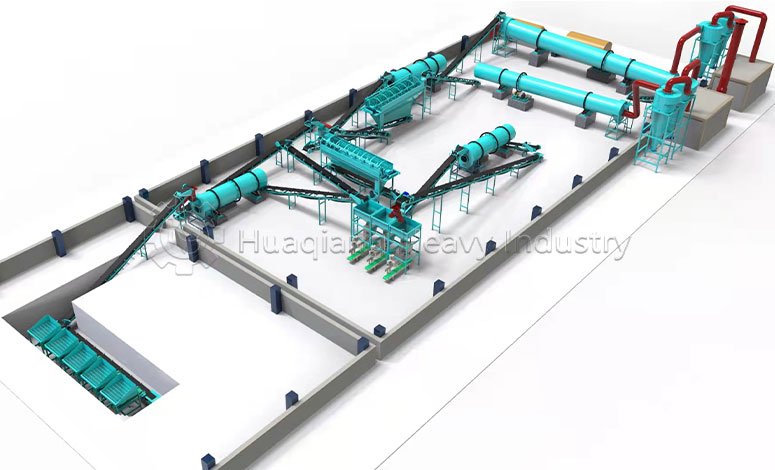Organic fertilizer production line suitable for small farms
When choosing an organic fertilizer production line, small-scale farms need to balance costs, efficiency, and ease of operation.
1.Start with Simple Composting Equipment
Small farms produce limited manure, making basic composting systems ideal. These setups require minimal installation and operation effort. Natural airflow or basic forced aeration systems work well for initial fermentation of materials like pig manure. They’re affordable and match the lower processing capacity typical of smaller operations.
2.Essential Crushing andScreening Tools
Post-fermentation, add basic crushing and screening machines. A crusher breaks down clumps into uniform particles for easier packaging or sale, while a sifter removes impurities like undecomposed chunks. These don’t need to be industrial-grade – compact, functional models get the job done.
3.Low Labor Requirements
With limited staff, prioritize equipment that’s easy to run. Look for user-friendly controls that allow one worker to manage daily operations and maintenance. Avoid complex systems needing specialized training – simplicity saves both time and labor costs.
4.Space-Smart Layout
Small farms often lack extra space. Design a compact organic fertilizer production line where equipment connects logically without wasting square footage. A tight layout simplifies workflow and keeps everything within easy reach.
5.Cost-Effective Choices
Focus on reliability over fancy features. Mid-range equipment that handles daily manure volumes without breakdowns is smarter than cutting-edge (and costly) alternatives. Durability and easy repairs matter more than advanced tech for small-scale needs.
As long as small farms choose an organic fertilizer production line that meets their needs, they can effectively process manure and produce high-quality organic fertilizer.
